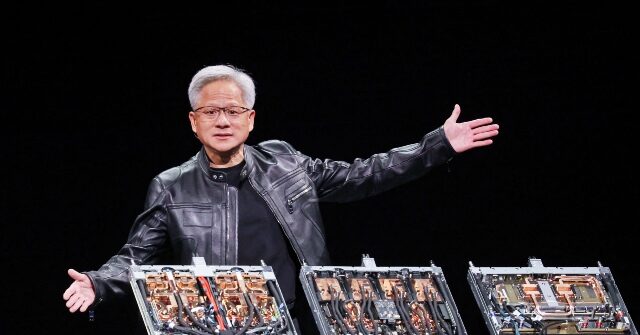Nvidia CEO Jensen Huang is calling on the Trump administration to lower barriers on the export of AI technology to China, which he labels a “failure.” The AI kingpin warns that not selling chips to our enemies could result in billions of dollars in lost revenue for American companies competing with Chinese companies like Huawei.
Bloomberg reports that at the recent Computex event in Taipei, Nvidia CEO Jensen Huang voiced his concerns about the potential consequences of maintaining strict US export restrictions on AI technology to China. Huang emphasized that China alone represents a $50 billion opportunity for AI technology providers in 2026, and if American companies like Nvidia are prevented from participating in this market, local customers will simply spend their money elsewhere. According to Huang, government efforts to stop the supply of high tech AI hardware to our enemy have been a “failure.”
Huang’s stance aligns with the views of some officials in Washington who advocate for the global adoption of an American “tech stack” – a comprehensive suite of hardware and services based on US expertise. The Trump administration is currently in the process of rescinding restrictions on Nvidia chip shipments to most of the world, although a new regulatory framework is being developed to replace the existing one.
The Nvidia CEO also challenged the notion that the United States is the sole developer and provider of AI infrastructure, stating that this assumption is fundamentally incorrect. He pointed out that China is home to 50 percent of the world’s AI developers, making it crucial for them to develop their applications on Nvidia or other American technology platforms. The comments echo the points Nvidia made during a public spat over exports to China with AI startup Anthropic.
Nvidia itself has been impacted by controls on the sale of its most advanced chips to China, the world’s largest semiconductor market. The company has written off $5.5 billion in H20 AI chips designed for the Chinese market, as these products were originally created to comply with export restrictions on higher-performance components. However, the Trump administration has since extended these curbs to include the H20 chips as well.
During his time in Taipei, Huang also discussed the $500 billion Stargate project, a data center buildout led by SoftBank Group Corp. and partners such as OpenAI, which will rely heavily on Nvidia equipment. The project has faced challenges in securing funding, but Huang expressed optimism about its potential.
Read more at Bloomberg here.
Lucas Nolan is a reporter for Breitbart News covering issues of free speech and online censorship.
Read the full article here


